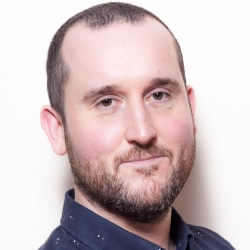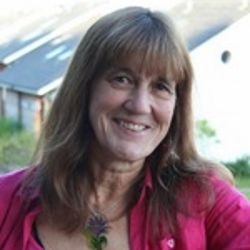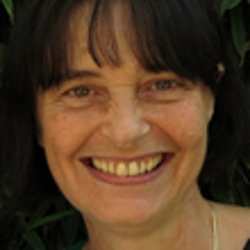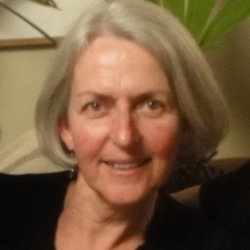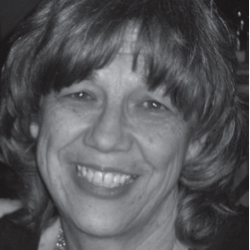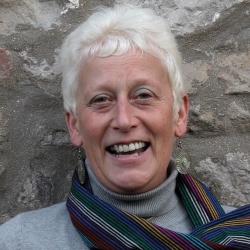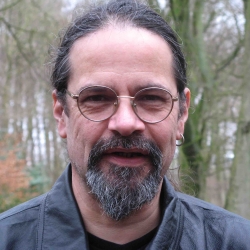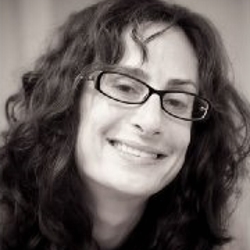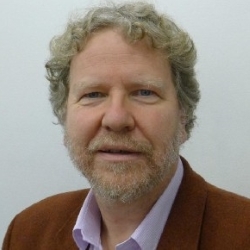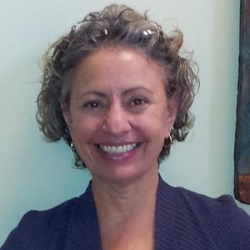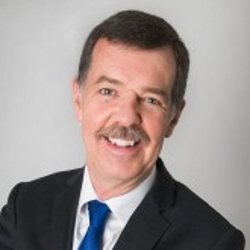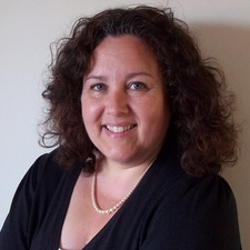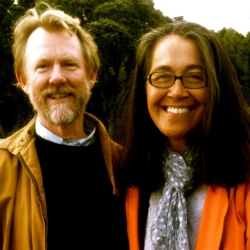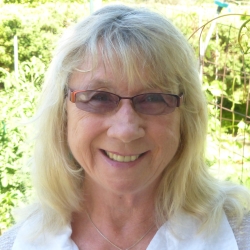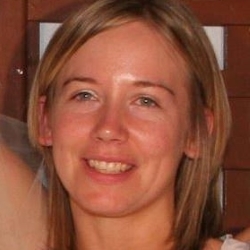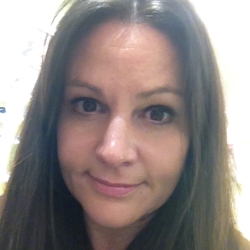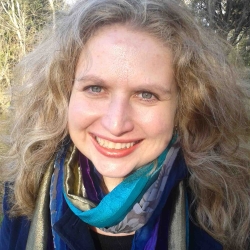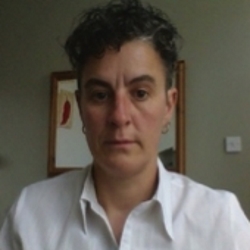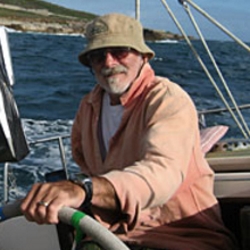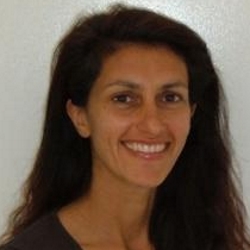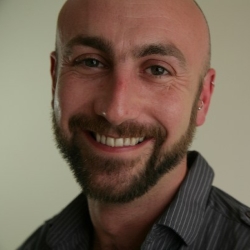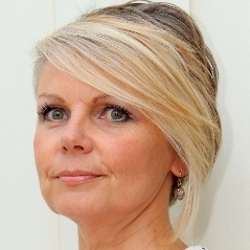In this conversation, Steve will endeavour to tease out some of the different ways of considering the nature and purpose of ‘supervisory relationship’ and its part with the overall work that is being supervised.
Read MoreExploring Work & Supervision Within Different Relational Contexts – Joseph Wilmot and Joan Wilmot
The settings and contexts in which we work involve different roles and responsibilities. These determine our approach to the work and can present us with a complex and changing landscape to navigate.
Joseph Wilmot and Joan Wilmot want to explore work and supervision within different relational contexts. Their relationship encompasses the familial, collegial, organisational and beyond. We will invite the group to explore and share their own experience of relationships in their work.
Read MoreWork is Love in Action – Joan Wilmot and Robin Shohet
Joan and Robin spend time reflecting with the online group about the place of work in our society and how supervision can help us to experience work as love in action.
Read MoreWheel of Supervision Training and Practice Groups – Alison Strasser & Adam McLean (Australia)
In this event, Alison and Adam are talking live from a Supervisors’ retreat in Byronshire, Northern New South Wales, an annual event which they offer to Supervisors who have completed their Wheel of Supervision Training.
They talked about the Wheel of Supervision Training which emerged from Alison’s doctoral thesis. It approaches supervision from a holistic standpoint: encouraging supervisors to create a personal model that works for them, focusing on putting theory into facilitated practice and on the development of the person of the supervisor.
Read MoreShould I Tell My Supervisee What I Think? – Anastacia Grant
I’ve been thinking (and talking) lately about the place of opinion in the supervision interaction. Does it have a place? What occurs when opinion is requested? What occurs when opinion is given?
Informal feedback from some of my supervisees suggest that opinion is an important tool for those who are wanting another perspective in the discussion related to their supervision items. I also hear opinion can be a distraction, a form of conflict and not a comfortable intervention especially when a supervisee is new or less confident.
Read MoreThe Use of the Supervisory Relationship for Learning in Supervision – Margot Solomon
How do experienced psychotherapists continue to learn in supervision? This conversation will explore how the supervisory relationship can be used as a primary resource for a supervisee throughout their career.
As a supervisor I value the reflective process that facilitates awareness of underlying emotional blocks or communications that have yet to be metabolized in the supervisory matrix. This requires me as a supervisor to be willing to continue to learn alongside my supervisee, to bear experiencing unconscious processes, to feel uncomfortable, to not understand or be able to make sense; and to recognize that anything that I experience in the session has potential for learning for both supervisee and supervisor.
Read MoreBut I Only Use a Bit of Skype for Supervision – Anne Stokes
In this hour Anne will look at what needs thinking about whether your online supervision is the occasional use of emails and live chat or whether you mainly supervise online.
Read MoreSupervisors: A New Duty of Care? – Peter Jenkins
This session will explore some of the ethical, professional and legal issues relating to supervisor “duty of care” and liability for supervisee’s practice, comparing US and UK models, together with changes to the role of the supervisor currently proposed by the BACP Ethical Framework (2016).
Read MoreTransactional Analysis and Supervision – Mark Head
Within this interview we will be exploring what Transactional Analysis, as an approach and a body of theory, can bring to the supervision process. Of particular focus will be the use of contracting within supervision.
Read MoreIs Supervision for Everyone? – Karl Gregory
Karl is looking forward to talking about his passion for Supervision as a profession in itself. And thinking about the question, “Is Supervision for everyone?” Or even, is it for anyone?
Karl developed a supervision practice long before he trained as a therapist and is passionate about the role of Supervision for all fields, not just counselling & Psychotherapy.
Read MoreSupervision on the Edge – Jacqueline Simon Gunn & Brent Potter
Contemporary clinical supervision calls supervisors to attend to material that does not fit neatly into diagnostic categories and labels. Varieties of psychological distress continue to flourish and do so in ever more complex ways. How does a supervisor understand material that has no reference point in the diagnostic literature?
One of the dimensions that remains largely unaddressed is the supervisor’s own personal emotional, psychological, and lived engagement with and reaction to the supervisee’s presence and clinical content. Where is the ‘container’, the boundaries surrounding the supervisor-supervisee relationship and when does it more resemble psychotherapy?
These and related facets of the clinical supervision relationship will be explored in intimate detail.
Read MoreInter(national)vision – Keith Tudor
In this event, Keith will discuss some of his ideas about supervision, including: the difference between being person-centred and client-centred; issues of responsibility and professional regulation; and supervision across jurisdictions. All these can be framed as part of inter-vision, i.e., super or wider vision between supervisor and supervisee, as distinct from supervision of or over the supervisee.
He also has interests in group supervision; supervision of brief therapy; supervision that is consistent with therapeutic modality; and training supervisors: all areas which might be discussed in this interactive online event.
Read MoreThe Exploration of Imagery and Response Art in Clinical Supervision – Diane Rode, Morgan Stojanowski, & Sarah Yazdian
In this session, which will combine taped clinical supervision encounters with live, interactive discussion, we will explore ‘response art’ and imagery in dialogue with two Child Life Specialists who work with children and adults at The Mount Sinai Kravis Children’s Hospital in New York City in Pediatric Medical/Surgical environments.
The value of artmaking by supervisees and refection of this work within Supervision will be explored as well as the discussion of various art-based supervision techniques focused on facilitating the capacity for reflection and self-awareness in supervisees.
Read MoreSupervision and the Dark Side – Martin Weaver
Supervision using Constructivist theory and practice to engage supervisees’ experience of Trauma, Bereavement & those difficult conversations.
A discussion focussing on ways to meet the supervisee working with stressful situations in order to create helpful and flexible responses.
Read MoreRadiant Reflection™ (LIVE DEMONSTRATION) – Amy Skezas, Topsoil, Julie Murphy, & Diane Wian
Radiant Reflection™ (RR) is a unique way of fostering well-being for people who are interested in growth and development through reflection and exploring consciousness.
Read MoreWe Don’t Have A Name For It – Clare Slaney
Modern counselling emphasises the importance of empathy and many therapists believe that this is possible with all clients. Since the psychological professions have once more become a wealthy middle class monoculture how can this possibly be the case? We have lost the theories and language of grassroots action that informed theorists like Rogers who understood the importance of authentic egalitarianism. Whether we like it or not, we have become – and the state is treating us as – experts in the lives of our clients.
How do we talk together about the hard realities of our professions? If we can’t talk together as equals, with curiosity and courage, daring to be vulnerable and truthful with each other, to listen with care and restraining the desire to alter each other, then perhaps we really are in more trouble than we care to admit.
Read MorePsychotherapy and Global Transformation – Jonathan Fay
Jonathan begins the Psychotherapy & Global Transformation 2015 Conference with a presentation and conversation about the potential for Psychotherapy to contribute to global transformation.
Read MoreCatastrophe or Transformation? How Humanistic Practice Makes a Critical Difference to Humanity’s Future – Maureen O’Hara
It’s no news to anyone who reads a newspaper or peruses the Internet that there is no shortage of bad news. Sometimes it is hard to face just how bad things seem to be. But though I have dark days like everyone else and despite all the dire predictions, I believe the world can be better and I believe that psychotherapy and other social practices aimed at human growth and existential freedom has a role to play in creating a sustainable humane future.
I owe my faith in the future to my temperament, my working class Yorkshire family, a social system in postwar Britain that made it possible for me to get a first rate education for free and of course a lot of help and dumb luck. It was luck that brought Carl Rogers into my life and exposed me to the emancipatory philosophy and practice of humanistic psychology. I first experienced humanism in action in a person-centered encounter group. What I experienced convinced me that, as Carl Rogers said, given the right conditions all human beings have within them vast resources with which to face their threats and transform their circumstances.
Humanistic practice provides us with transformational approaches to providing these conditions. Let’s talk about how we can provide them on a cultural scale.
Read MoreSocial Change from the Counselling Room – Mick Cooper
In 2005 I became involved in organising workshops at person-centred conferences on the person-centred approach and social change. I was always struck by how many people attended these workshops and how passionate they were about this issue. It seemed that many people, like me, had come into the person-centred approach from left wing backgrounds and were looking to see how stronger links could be forged between the person-centred approach and a progressive political agenda.
Read MoreLearning from Our Differences: Drawing from Our Overarching Humanity – Kristine Abercrombie
To say we are all unique does not really capture the complexity and true ‘one-of-a-kind’ we all are. Regardless of what theoretical orientation or orientations we all practice from, or our training background, all of us counsellors / psychotherapists / clinical psychologists are taught and deeply know the importance of our own self awareness, both for our therapeutic relationships and self-care.
Words such as difference and diversity, transference and counter transference, narratives, scripts and stories, authenticity and individualisation are regularly discussed. We are all trained and experienced in sitting with our clients differences, vulnerabilities and uniqueness, but it is inherently and understandably more difficult to sit with our own.
Read MoreShifting Consciousness and Social Change – Peggy Natiello, Carol Wolter-Gustafson, Keemar Keemar, & John Wilson
Rogers predicted that ‘ persons of tomorrow’ would be “…at home in a world that consists only of vibrating energy, a world with no solid base, a world of process and change…..” Rogers optimistically welcomed change. ”I take pleasure in trying to discern the directions in which we are moving…we are going through a transformational crisis from which we and our world cannot emerge unchanged.”
The radical changes Rogers intuited are upon us, and we suspect they will call for a shift in consciousness. Going Global, November 2015 is designed as a person-centred community that will dwell together for 5 days, and attempt to envision ways of coping creatively with the already arriving challenges.
Read MoreMaking a Difference: How to Realise Your Political Hopes and Ambitions – From Idealism to Realism – Andrew Samuels
I will look at things like people’s early political memories, the sources of their political ideas and commitments, the level and nature of their energy for social and political causes, the construction of a ‘political journal’, the shadow aspects of their idealism – and maybe other things.
Read MoreTranscultural Counselling as a Way to Contribute to Peace Reconstruction in Post Conflict Countries – Sandra Grieve & Lucia Berdondini
Sandra and Lucia talk about their experience facilitating counselling skills courses in Afghanistan, India and Angola. Describing their learning around building relationships with the organisations that will make the courses possible and how they approached the learning with the students.
Read MoreSMART Recovery: Introducing Choice and Responsibility, Two Sides of the One Coin – Jardine Simpson
SMART Recovery: Introducing Choice and Responsibility, two sides of the one coin.
The therapeutic ethos of SMART and its development in Scotland.
Read MoreUnderstanding the Fundamentals of Sex Addiction Treatment – Paula Hall
Paula will talk us through the “Cycle of Addiction” model to help us understand the complexity of working with sex addiction and the need for a multi-disciplinary approach.
Paula will also describe the common mistakes that we might make in private practice as we seek to support a client in their recovery from sex addiction.
Read MoreCore Characteristics of Addiction and Recovery – Noel McDermott
In this session Noel will look at some of the core characteristics of addiction. The psychological features that are common across all fifteen recognised addictions. He will go through the fifteen recognised addictions and explain how they link.
He will look at issues in assessment and treatment. Using his clinical experience to present a humanistic and holistic view of addiction. He will look at how the issues manifest in family work and dealing with dysfunctional family systems. Noel will look at trauma and it’s relationship to addiction and treatment in recovery He will present on what we know about addiction science.
Noel will in the second section of the hour look at recovery. Explaining what it is as a concept and how it relates to addiction, codependency and family systems treatment.
Read MoreIs Recovery From An Eating Disorder Possible? – Kel O’Neill
One of the questions most commonly asked my clients and other health care professionals me is: “is recovery from an Eating Disorder even possible?”
I believe our understanding of recovery as the professionals has a profound impact upon the recovery process. In the one hour session I will explore with you what national statistics, service users and my experience has to say on this topic.
Read MoreGlobal Online Support & Counselling for the Problem Gambling Community – Jane Fahy
Jane Fahy would love to talk to people with an interest in either online support and counselling and how that works on a global stage, or people with a desire to learn more about problem gamblers and their suitability for online support. She manages the delivery of synchronous and asynchronous support in groups and one to one, and also integrate the use of technology into various types of face to face support for problem gamblers which she’d be happy to explore with those listening.
Read MoreCommon Pitfalls and Frustrations Encountered by Practitioners Working with Dependancy – Sarah Loeb
Sarah Loeb specialises in supervising counsellors who work with clients affected by substance use and has written and facilitated various courses training practitioners on working with issues related to substance use and dependence.
In her supervision and training work she often encounters similar anxieties, concerns and frustrations presented by counsellors and psychotherapists who are working with issues connected to dependency
Read MoreTechnology Enhanced Recovery: Getting Connected – Michaela Jones
Technology in all its forms has become a fundamental part of how we live our lives. Yet its value has still to be fully explored within the substance misuse sector. Why is there such reluctance and what benefits can it bring?
This presentation will attempt to bust some of the myths around who uses technology and explore how being online can support and sustain long-term recovery.
Read MoreNeuroscience in Adventure Therapy – Richard Lannowe Hall
When the left brain and right brain are engaged at the same time and the client focuses on specific issues the changes are quick and efficient, nothing that new here. But when this process is combined with different aspects of marine adventure therapy, through states of being, doing and thinking the results are dramatic.
Richard is looking forward to describing the work he does working with people in recovery, what he has learned in how to set up the environment, group processing and the magic of being outdoors. Richard is hoping that we will help him to further his understanding of what he is noticing in his work with clients.
Read MoreThe Critical Adult: A Critical Concept for Interesting Times – Keith Tudor
Critique is a method of disciplined, systematic analysis of a specific text, a body of work, or an oral discourse. In philosophy, critique refers to a methodical practice of doubt, and criticism is viewed as essential to enquiry, making meaning of life, and to being human.
Yet, in the field of psychology, including transactional analysis, criticism and being critical is, more often than not, viewed negatively. In this keynote speech, Keith argues that critique, criticality and being critical is (also) an Adult activity, and uses the concept of the critical Adult to develop these ideas.
Read MoreRadical Relational Psychiatry: Towards Democracy of Mind and People – Karen Minikin
In this livestream workshop I bring together the Radical from our past with contemporary (Relational) Transactional Analysis. My motivation in integrating these two approaches is that both speak to my personal philosophy. From radical psychiatry, I honor our roots in reforming thinking and practice. Relational TA is a different reminder of our roots and integrates contemporary thinking from the broad relational field, which has further informed our theories and practices.
Read MoreVulnerability Quotient – Giles Barrow
I am proposing to take a look at an idea from early TA which I think gets overlooked but is worth re-visiting. It’s Woollams and Brown’s (1978) Vulnerability Quotient.
This is a neat little notion that was originally presented to help make sense of the context out of which the small child creates a script. I really like it just for that purpose, however, I have noticed how useful it is to make sense of what goes on in the educational experience.
Read MoreRelational Principles in Coaching, Therapy, and Supervision – Charlotte Sills
I came to a relational approach to therapy through my experience as a therapist, my discussions with Helena Hargaden and other colleagues, and in supervision, reading and studying. But my thinking about a relational perspective has been broadened, deepened and shaped by contemporary energy physics and organisational theory, research into neuroscience, and indeed my spiritual teaching.
Read MoreStrengthening The Working Alliance – Mark Widdowson
The therapeutic relationship is known as the most reliable predictor of positive outcome in psychotherapy. In this livestream, Mark will be discussing a range of research findings relating to best-practice in establishing and strengthening the working alliance and reliable methods of reducing premature termination/ drop-out from therapy.
Read MoreWorking with Children Who Get the Blame – Jane Evans
What are the challenges when we are presented with a child or young person as ‘having problems’?
Can we sometimes get drawn in to fixing or diagnosing children & young people in a way which may be unhelpful? How does that feel for our client, to parents/carers and to us as practitioners?
Read MorePutting Children & Young People in the Driving Seat – Amrita Ahluwalia & Glenn Liddall
We are currently consulting with young people across the City of Edinburgh, East Lothian and Midlothian to ascertain what the issues of the day are for them and how they consider PKH could respond. PKH will then develop and trial a project to support children and young people based on these findings.
Read MoreUsing a Case Study to Look at Attachment When Working with Children & Young People – Stephanie Cooke
Steph will bring a case study to talk about experiences in working clinically with young children and adolescents. Using a case study, Steph will describe what has worked in her practice, what hasn’t worked and share a success story.
Read MoreThe Effect Of Social Class/Status on Therapy with Children & Young People – Simone Daniels
Raising our awareness of how social class/ status can impact our own lives, the lives of our young clients and the therapeutic relationship.
Read More
